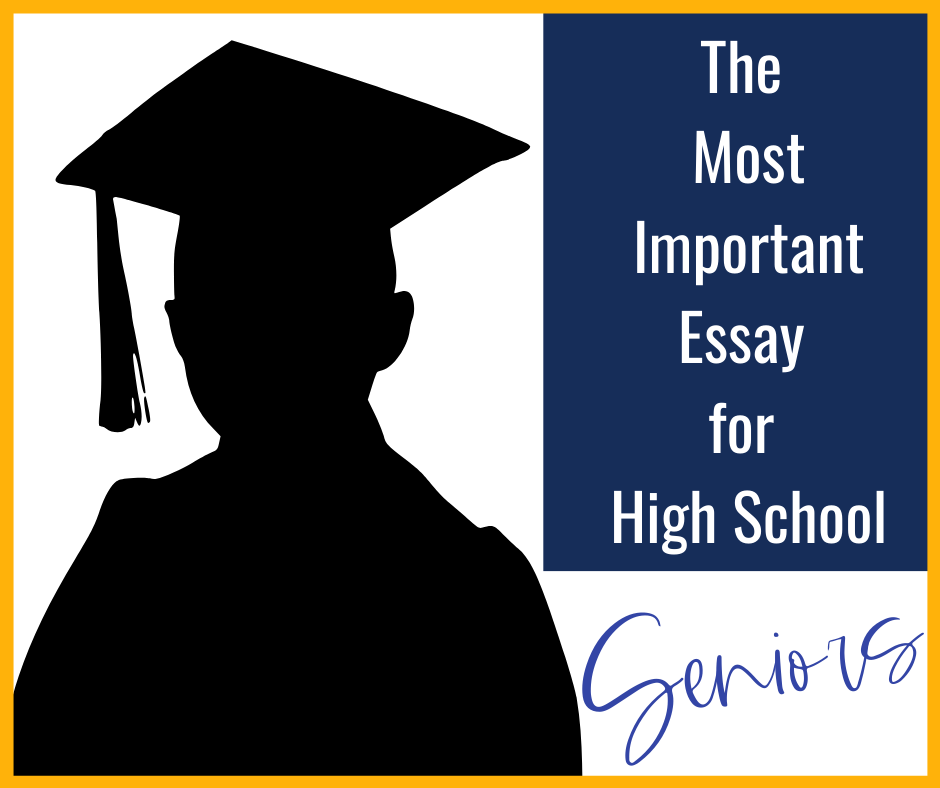The Most Important Essay for High School Seniors: The Personal Philosophy Statement
Teaching high school seniors makes for an interesting group of students because they've mostly already passed their standardized tests and know their next steps in life-- college, work, military, etc. Because of this, teaching seniors can also make for a difficult second semester in trying to keep students motivated. This group of students has been tested multiple times, trained to write analytical essays for these tests plus SAT and ACT, been forced to blend quotes and synthesize arguments-- for 12 years! No wonder they are burnt out and unmotivated as second semester seniors. However, focusing on reflective writing can be a nice way to allow students the freedom to express themselves and reflect back upon their childhoods and adolescence in a meaningful way. The Personal Philosophy Statement can provide students with the means to synthesize their life experiences as they take a step towards adulthood-- and be free to do it their way.
What is a Personal Philosophy Statement?
A Personal Philosophy Statement is a topic that is well-known to college and graduate school applications. In brief, it is an essay in which a person makes a statement about who he/she is, what he/she believes in, and what is most important to him/her.
A great model for this type of essay assignment is the "This I Believe" Series by NPR. In this series, people write brief essays about what it is they believe based upon their life experiences. Anyone is welcome to submit an essay (even students if they are able to get their funding back), but they also have famous contributors such as Tony Hawk, Muhammed Ali, Helen Keller, Elie Wiesel, among others. NPR even has an entire curriculum for teachers, which you can find here.
Questions for High School Seniors
Here is a list of questions specifically for high school seniors to contemplate while writing their Personal Philosophy Statements. Students can use these questions in small or large group discussions, as journal prompts, essay drafts, and/or free-writing prompts to contemplate and process their own beliefs.
Society says, "Education is the key to success." What do you believe and why?
Some say, "Money equals freedom and happiness." What do you think and why?
"Carpe diem" means "Seize the day." Do you embrace this philosophy or reject it? Why or why not?
Global politics shows us that war is justified and sometimes unavoidable. What do you believe? Why?
Do you believe that some things are worth dying for? Why or why not?
Many people believe there is an afterlife. What do you believe? Why?
Some have said that life is wasted on the young. Do you believe this is true? Why or why not?
Elie Wiesel said, "All it takes for evil to triumph is for good people to do nothing." Do you agree or disagree? Why?
Do you believe in predestination, or the idea that your life's journey, path, and destination were decided before you were born? Or do you believe in free will? Explain.
Social contract theory dictates your responsibilities to the government as a citizen. What do you believe about your level of responsibility to the government?
Some people believe that athletes and celebrities should be held to a higher standard of conduct than ordinary people. What do you believe? Why?
Do you believe that blood is thicker than water? Explain.
What is your greatest triumph in life thus far? What did you learn from it?
What is the greatest tragedy of your life thus far? What did you learn from it?
What do you know for sure?
The American education system is failing on a global scale. Why do you think this is? What do you think of the education you've received in your lifetime? Do you have any ideas for how to improve the American education system?
Legally, a person is an adult at the age of 18. At that point, many teenagers believe that no one has the right to tell them what they and cannot do. What do you believe and why?
What is your greatest memory from school?
What did you learn about life from going to school?
Many children and adolescents are bullied by peers. Were you bullied? How did this shape your view of the world, of school, and of life?
Video and computer games: Do you think they're a problem? Why or why not?
The "plugged in" life: Do you think it's a problem to have so much technology at your fingertips? Why or why not?
The Assignment
There are many different ways to differentiate the requirements of a Personal Philosophy Statement. I have assigned this essay in a few different ways, and I have required that students integrate literature someway/somehow at different points in time. Eventually, I ended up dropping the literature component because it ended up stifling the students' organic and authentic philosophy statements. In some cases, it felt as though students "stuck in" a literary quote because it was required and not because it somehow informed their personal philosophies. You can experiment with this and see what works best for your students.
I have also experimented with various lengths of the essay, finally settling in on 500-800 words, which forces students to really focus their ideas down in scope to one or two specific beliefs. For a couple of years, I had no length requirement for the essay because I wanted to give students absolute freedom of expression. However, that changed quickly when I had one student turn in a haiku and another turn in 50 pages. I knew that I needed to level the length requirement so that I could assess my students fairly. I also have my students submit their essays single-spaced in order to be bound in a classroom anthology as a part of my classroom library. Students enjoy being able to share their work and read the personal philosophies of students from prior years.
I have attached the assignment rubric that I use as a FREE DOWNLOAD. Click on the image to get your free copy!
Sharing
Some of the most poignant memories I have of teaching high school seniors is of students sharing their Personal Philosophy Statements. Some have cried; some have laughed; some have been nervous; some have been excited. To this day, I still have former students send me notes about how this one assignment has stuck with them, or how reflecting back on this essay as an adult made them realize things about how they had matured.
So, I encourage you try this assignment, to give your seniors a chance to explore their beliefs before they step out into the world as "adults." I guarantee that this is one assignment they will remember more than any literary analysis essay they have ever written.
About the Author
Meredith is the founder and creator of TeachWriting.org and Bespoke ELA. She has taught high school English for 10+ years in Dallas, Chicago, and New York City and holds a M.A. in Literature from Northwestern University. She has always had a connection to the written word-- through songwriting, screenplay writing, and essay writing-- and she enjoys the process of teaching students how to express their ideas. Meredith enjoys life with her husband, daughter, and sweet pups.








